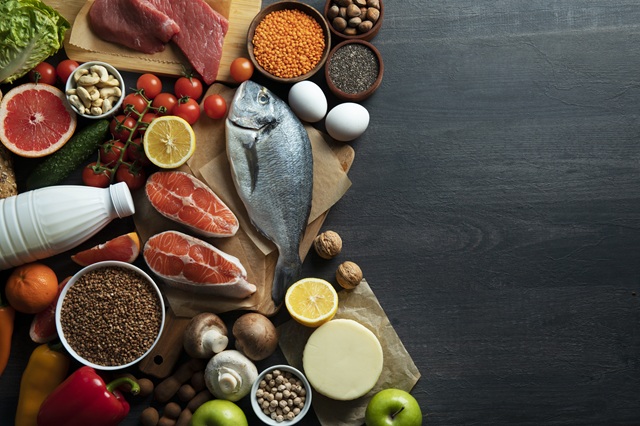
Proteins are the unsung heroes of our bodies, performing countless vital functions that keep us alive and thriving. From building muscle to fighting disease, these incredible molecules are the true workhorses of life. Let's dive into the fascinating world of proteins and discover what makes them so essential!
The Protein Powerhouse: Understanding These Life-Sustaining Molecules
Proteins are complex molecules made up of amino acids linked together in long chains. Think of them as the body's construction workers, architects, and security guards all rolled into one. With over 20 different types of amino acids, proteins can fold into millions of different shapes, each designed for a specific job.
15 Incredible Functions of Proteins You Need to Know
1. Structural Support: The Body's Framework Builders
Proteins like collagen and keratin provide the structural framework for our bodies. Collagen makes up about 30% of all proteins in your body and keeps your skin, bones, and connective tissues strong and flexible. Without it, we'd literally fall apart!
2. Enzymatic Reactions: The Body's Chemical Catalysts
Over 3,000 different enzymes in your body are proteins that speed up chemical reactions. From digesting food to creating energy, enzymes make life's chemical processes possible. Without these protein catalysts, reactions would happen too slowly to sustain life.
3. Transportation Network: Protein Delivery Trucks
Hemoglobin, a protein in red blood cells, carries oxygen from your lungs to every cell in your body. Albumin transports hormones and fatty acids through your bloodstream. These transport proteins ensure vital substances reach their destinations.
4. Immune Defense: The Body's Army Generals
Antibodies are specialized proteins that recognize and neutralize foreign invaders like bacteria and viruses. Your immune system produces millions of different antibodies, each designed to fight specific threats to your health.
5. Muscle Contraction: The Mechanics of Movement
Actin and myosin proteins work together to make muscle contraction possible. Every time you blink, walk, or exercise, these proteins are hard at work making movement happen.
6. Hormonal Communication: The Body's Messaging System
Insulin, growth hormone, and adrenaline are all protein-based hormones that regulate everything from blood sugar to stress responses. These chemical messengers coordinate activities between different parts of your body.
7. Cell Signaling: Protein Communication Networks
Proteins on cell surfaces receive and transmit signals, allowing cells to communicate with each other. This cellular communication is essential for coordinating complex biological processes.
8. Storage Solutions: Protein Warehouses
Ferritin stores iron in your liver, while casein stores amino acids in milk. These storage proteins ensure vital nutrients are available when your body needs them most.
9. Blood Clotting: Emergency Response Proteins
Fibrinogen and other clotting proteins spring into action when you're injured, forming blood clots that prevent excessive bleeding. Without these proteins, even minor cuts could be life-threatening.
10. pH Balance: Protein Buffers
Protein buffers help maintain the proper acid-base balance in your blood and tissues. This pH regulation is crucial for all cellular processes to function properly.
11. Fluid Balance: Protein Plumbing Systems
Plasma proteins like albumin help maintain proper fluid balance between your blood vessels and tissues, preventing dangerous swelling or dehydration.
12. Nutritional Reserve: Protein Energy Banks
When carbohydrate and fat stores are depleted, your body can break down proteins for energy. While not the preferred energy source, this backup system can be life-saving during starvation.
13. DNA Repair: Genetic Maintenance Proteins
Specialized proteins constantly monitor and repair damage to your DNA, preventing mutations that could lead to cancer or other genetic disorders.
14. Cell Division: Protein Reproduction Helpers
Proteins control the complex process of cell division, ensuring that genetic material is properly copied and distributed to new cells during growth and repair.
15. Vision: Light-Sensitive Proteins
Rhodopsin, a protein in your eye's rod cells, converts light into electrical signals that your brain interprets as vision. Without this protein, you wouldn't be able to see in low light conditions.
Protein Facts: Mind-Blowing Statistics
Here are some additional protein facts that highlight their importance:
- Your body contains approximately 100,000 different types of proteins
- Proteins make up about 15-20% of your total body weight
- Your liver produces about 200 different proteins every day
- A single protein can perform multiple functions depending on its location
- Protein deficiency affects over 1 billion people worldwide
The Bottom Line: Why Proteins Matter
Proteins aren't just important—they're absolutely essential for life. Every function in your body, from the beating of your heart to the thoughts in your mind, depends on proteins working properly. Whether you're building muscle, fighting infection, or simply maintaining your body's balance, proteins are there making it happen.
Understanding protein functions helps you appreciate why adequate protein intake is crucial for optimal health. From the food you eat to the air you breathe, proteins are involved in virtually every aspect of keeping you alive and well.
Remember: Proteins are the molecular machines that make life possible. By understanding their diverse functions, you gain insight into the incredible complexity and wonder of the human body. Whether you're an athlete, a health enthusiast, or simply curious about biology, proteins deserve your attention and respect.
So the next time you enjoy a delicious meal or marvel at your body's abilities, remember to thank those hard-working proteins that make it all possible!
Tags:
Image Credits: Freepik








